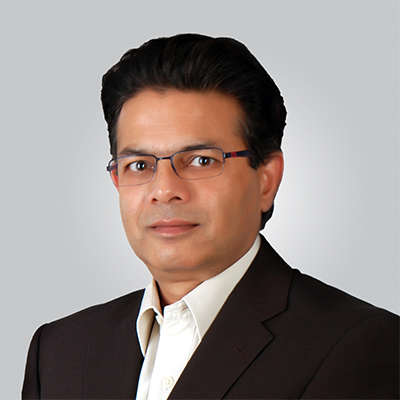Why HR Leaders need a business mind with a people focus? | Abhay Srivastava | CHRO | IKS Health Limited
 Employees who are engaged in the workplace and committed to the organisation are crucial as it results in high productivity rate and low attrition. Due to the intense competitive talent landscape, organisations have been struggling to create significant engagement across. Over the course of the pandemic and subsequent period post lockdown, companies witnessed a large number of layoffs as well as attrition. Companies adopted short term measures to address this problem. But with the market dynamics changing rapidly, companies have to do a lot more to ensure a sustainable future of work. While human capital development is an organisational responsibility, the onus of catalysing it rests on the shoulders of the HR.
Employees who are engaged in the workplace and committed to the organisation are crucial as it results in high productivity rate and low attrition. Due to the intense competitive talent landscape, organisations have been struggling to create significant engagement across. Over the course of the pandemic and subsequent period post lockdown, companies witnessed a large number of layoffs as well as attrition. Companies adopted short term measures to address this problem. But with the market dynamics changing rapidly, companies have to do a lot more to ensure a sustainable future of work. While human capital development is an organisational responsibility, the onus of catalysing it rests on the shoulders of the HR.
With the tides of AI reshaping the work environment, HR professionals must evolve and adapt to these new realities. Their role is now more crucial than ever, as they navigate the complex task of fostering motivation and adding value to the workforce amid rapid technological advancements. HR’s responsibility extends beyond keeping employees abreast of AI developments; they must also cultivate agile, adaptable teams prepared to harness AI’s potential for productivity and growth. This delicate balance between embracing the opportunities AI presents and addressing the human element, HR professionals hold the key to unlocking the potential of tomorrow’s workforce.
But what should HR do to keep teams motivated and ready for this AI world? What are the best practices and strategies to move forward, adopt new roles, and integrate innovative processes into HR policies? As organisations venture into uncharted territories, it’s essential for HR professionals to act as trailblazers, anticipating changes and addressing the evolving needs of both employees and businesses.
The first step HR professionals must cultivate is teams that are not only attuned to the company’s vision but also capable of delivering rapid turnarounds and exceptional service. Fostering a culture of adaptability, resilience, and collaboration enables HR professionals to help organisations thrive in a dynamic business environment. The new developments in HR practices are profound.
Experience Designer: crafting immersive employee journeys
In the realm of HR, experience designers are responsible for creating a seamless and engaging employee experience throughout the organisation. They tailor processes, policies, and tools to meet employees’ needs and expectations, fostering a sense of belonging, motivation, and investment in the company’s success. The employee journey, from on-boarding to career development and even off-boarding, becomes a positive and meaningful experience for all involved.
Capability builder: ignite talent and inculcate lifelong learning
HR professionals must take on the role of capability builders, that identify and nurture skills and talents necessary for organisational growth. Implementing a continuous learning and development program, promoting a growth mindset, and encouraging cross-functional collaboration are some strategies that have to be employed. HR must prioritise reskilling and upskilling initiatives to ensure that employees and organisations remain competitive, and forward looking.
Communication architect: build bridges and trust
A robust organisational culture requires open and effective communication. As new communication architects, HR professionals have to design and implement strategies that encourage open dialogue, facilitate feedback, and ensure employees feel heard, and contribute to new systems and practices. HR must employ various methods, such as digital platforms, regular town hall meetings, or anonymous feedback channels, and develop a culture of trust and transparency. This approach helps cultivate strong connections among team members and boosts overall employee engagement.
Employee success manager: champion high performance
In roles as employee success managers, HR professionals need to develop a keen focus on nurturing individual performance and job satisfaction. They must create a tailored performance management system for each employee’s varying needs, provide coaching and feedback, and celebrate achievements through recognition programs. Proactively addressing potential barriers to success, such as work-life balance challenges or organisational obstacles, has indeed become a process in the HR response.
Digital analytics-driven decision maker: harness data for informed choices
The rise of data-driven decision-making has to transform HR professionals into digital analytics decision makers. The new tool to utilise HR software and analytics to assess employee performance metrics, recruitment strategies, and the impact of learning and development initiatives is a must. This data-driven approach enables HR professionals to make more accurate and objective decisions, resulting in better outcomes for both employees and the organisation.
Well-being advocate: prioritise employee health and happiness
In the modern workplace, the importance of employee well-being cannot be overstated. HR professionals must act as well-being advocates, creating strategies and programs that aim to elevate physical, mental, and emotional health of employees. HRs have to introduce flexible work arrangements, mental health resources, and wellness initiatives to support a well-rounded, healthy workforce. It’s a new way HR professionals can contribute to improved
productivity, reduced absenteeism, and higher employee retention.
Adopting these emerging trends and adapting to the changing business landscape allows HR professionals to effectively support organisations in navigating the challenges of the future. The new face of HR is innovative, agile, and forward-thinking, positioning the profession as a crucial component of the journey towards future-ready workplaces. At the intersection of this new business environment, HR’s adaptive role is vital to handle the new challenges with strategic foresight that develops the future-ready mindset.


